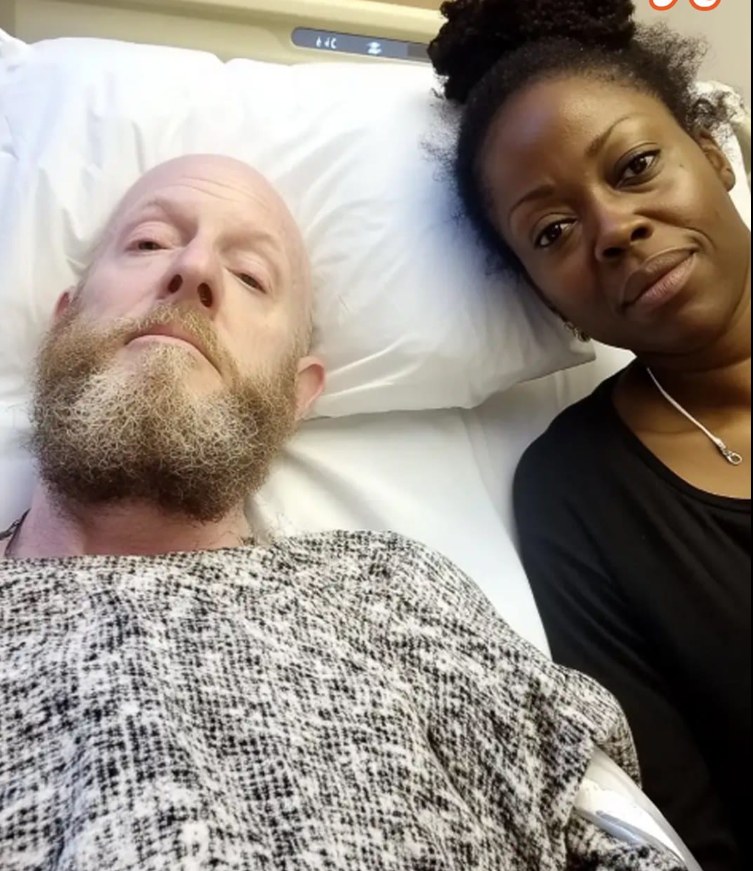
Diana was grappling with the unbearable reality of losing her husband, Eric, to a terminal diagnosis.
The doctor’s words—stage four cancer, only weeks left—had shattered her world. She found herself clinging to memories of their 15-year marriage, a life now reduced to the cruel countdown of days.
One evening, as Diana sat in the hospital courtyard, the ache of impending loss pressing down on her, a nurse appeared out of nowhere.
With an air of quiet urgency, the stranger whispered, “Set up a hidden camera in his ward. You deserve to know the truth.”
The cryptic warning rattled Diana. What truth? she wondered. Anger mingled with confusion, but the seed of doubt had been planted. The next day, compelled by an instinct she couldn’t ignore, she concealed a small camera in Eric’s room, hidden among the flowers on the windowsill.
Hours of footage revealed nothing unusual—until it did. At 9 p.m., the ward door opened to a striking woman in a leather coat.
To Diana’s horror, Eric, who was supposedly too weak to stand, leapt out of bed with startling ease. He embraced and kissed the woman, their connection unmistakably intimate.
As they talked and exchanged papers, it became clear:
Eric was far from dying. He was orchestrating a plot to fake his death, collect insurance money, and vanish with his mistress.